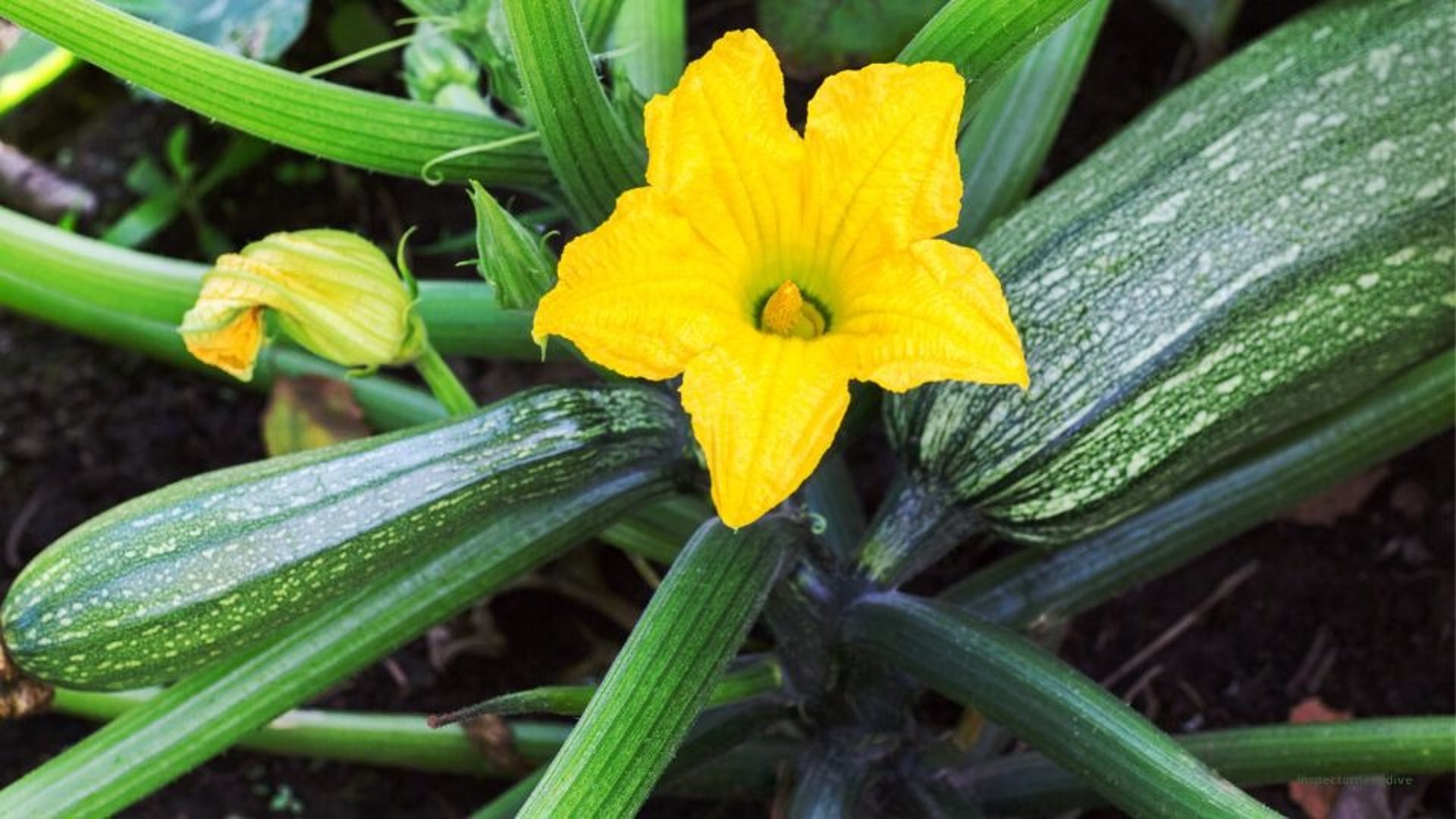
Zucchini Supports Long-Term Wellness and Weight Loss

Scientific name: Cucurbita pepo
Family: Cucurbitaceae
What it is
Zucchini is a low-calorie, high-water with mild flavor and gentle fiber, useful for hydration, digestive support, and its low-calorie. Zucchini is a summer squash with tender green skin and a soft, pale interior. It is eaten raw or cooked and appears in savory and baked dishes. It is mild in flavor and adapts well to many cooking methods.
Where it comes from
Domesticated in Central America and later refined into the modern forms in Italy, zucchini is now grown worldwide in temperate and Mediterranean climates.
How many varieties
Common types include classic green zucchini, golden or yellow zucchini, round zucchini, striped varieties, and heirloom cultivars. Differences are mainly cosmetic and textural; overall nutrition is similar across types.
Seasonality & availability
Peak season is late spring through early autumn. Fresh zucchini is widely available year-round because of greenhouse production and global trade. Choose firm, unblemished fruit with glossy skin.
Key benefits
Hydration support: High water content helps maintain fluid balance.
Digestive aid: Gentle fiber supports regularity and gut health.
Low calorie: Useful for weight management because it adds volume with few calories.
Heart support: Potassium and modest magnesium content support cardiovascular function.
Eye protection: Lutein and other carotenoids support retinal health.
Antioxidant support: Vitamin C and polyphenols protect cells from oxidative stress.
The Anti Factor
Anti-inflammatory: Cucurbitacins and polyphenols may lower inflammation markers.
Antioxidant: Vitamin C and flavonoids neutralize free radicals.
Gut-supporting: Fiber supports healthy microbiome diversity.
Caution: Excessive intake may cause mild bloating in sensitive individuals due to FODMAPs.
Nutritional breakdown (per 50 g cooked, approx)
Vitamins
Vitamin C: 12 mg, boosts immunity and aids collagen production
Folate: 12 µg, essential for DNA synthesis and fetal development
Vitamin A (beta-carotene): 100 IU, supports vision and immune health
Vitamin K: 3 µg, promotes blood clotting and bone strength
Riboflavin (B2): 0 mg (trace), supports energy metabolism
Minerals
Potassium: 125 mg, regulates heart rhythm and muscle function
Magnesium: 9 mg, supports nerve and heart function
Phosphorus: 13 mg, involved in energy storage and cell function
Iron: 0.2 mg, helps carry oxygen in the blood
Manganese: 0.1 mg, involved in antioxidant defense and bone development
Macronutrients
Calories: 8 kcal, extremely low energy density
Water: 44 g, highly hydrating
Protein: 1 g, small plant-based source of amino acids
Total fat: 0 g, virtually fat free
Carbohydrates: 2 g, includes fibre and natural sugars
Dietary fibre: 1 g, promotes digestive wellness and satiety
Sugars: 1 g, naturally occurring
(Note: values are rounded and approximate. Actual numbers vary by variety, soil, ripeness and cooking method.)
What zucchini does for your body
Hydration support: High water content helps maintain fluid balance and supports kidney function.
Digestive aid: Light fiber supports regular bowel movements without irritation.
Inflammation reduction: Polyphenols and cucurbitacins provide antioxidant and anti-inflammatory effects.
Eye health: Lutein and carotenoids help protect retinal tissue and may slow age-related vision decline.
Blood sugar regulation: Low glycemic impact and fiber help moderate post-meal glucose responses.
Synergistic nutrients
Olive oil: Adds healthy fat to enhance absorption of fat-soluble carotenoids.
Tomatoes: Provide complementary antioxidants and improve overall nutrient diversity.
Lemon or vinegar: Adds vitamin C and acidity to help mineral uptake.
Herbs (basil, oregano): Add polyphenols and digestive benefits.
Surprising truths
Zucchini flowers are edible and used in many cuisines.
Zucchini shrinks dramatically when cooked because of its high water content.
Zucchini bread masks the low-calorie nature of the vegetable and adds moisture to baked goods.
Excessive zucchini intake can cause temporary bloating in FODMAP-sensitive people.
Environmental impact
Zucchini grows quickly with moderate water needs and performs well in crop rotation. It is low-impact compared with animal foods and supports biodiversity in home gardens. Pesticide use and monoculture practices can increase environmental costs.
Storage & shelf life
Store fresh zucchini in the refrigerator for up to five days. Keep dry and use a paper bag or perforated bag to avoid moisture buildup. Cooked zucchini keeps for 3–4 days refrigerated. Freezing is possible but will change texture.
Label reading tips
Choose zucchini that are firm and free of soft spots or wrinkling. Smaller fruit are often firmer and sweeter. Organic options may reduce pesticide exposure.
Chef & culinary tips
Salt sparingly when roasting to avoid excess moisture loss.
Add zucchini near the end of cooking for quick sautés to preserve texture and nutrients.
Spiralize for noodles, stuff round varieties, or use thin slices in layered bakes.
Roast at high heat to caramelize edges and concentrate flavor.
Use flowers stuffed with cheese or battered and fried as a delicacy.
Recipes or Meal ideas
Zucchini Noodles with garlic, olive oil and chili flakes.
Zucchini flowers stuffed with tomato onion and rice, battered and shallow fried.
Grilled Zucchini Salad with feta and lemon.
Zucchini Fritters with egg and Parmesan.
Creamy Zucchini Basil Soup.
Science behind it
Zucchini contains lutein, cucurbitacins and flavonoids that act as antioxidants and may reduce inflammation. Fiber supports gut microbiota diversity. Peel and seed composition vary and can concentrate phytonutrients.
Scientific breakthroughs as of 2025
Zucchini-derived peptides have been shown to support vascular function and may help regulate blood pressure in preliminary clinical studies.
New cultivars with enhanced lutein content have been developed to support eye health.
Functional food research is exploring zucchini’s role in moderating post-meal glucose spikes and supporting liver detox pathways.
FAQs
Is zucchini good for weight loss? Yes, it is low in calories and high in water and fiber, so it helps with satiety.
Does zucchini cause gas? Some people experience mild gas due to FODMAPs; cooking can reduce this.
Why does zucchini become soggy when cooked? Its high water content releases moisture during heating; use high-heat methods to reduce sogginess.
Are zucchini flowers edible? Yes, they are edible and often stuffed or fried.
Zucchini Supports Long-Term Wellness and Weight Loss
info@inspectordeepdive.com
© 2025 food.InspectorDeepDive.com. All rights reserved. Content may not be copied or republished without permission.
This article is for informational purposes only. InspectorDeepDive.com does not provide medical advice. Always consult a licensed healthcare provider before making dietary or health decisions.
